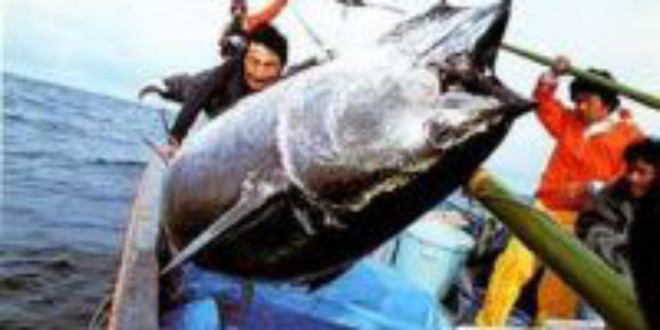(From reuters.com) Luxembourg – Europe”s exotic deepwater fish, some of which can live up to 150 years, won more protection from the European Union on Monday as fisheries ministers agreed to hefty quota cuts for the next two years. Bearing names like forkbeard, black scabbardfish, greater silver smelt and roundnose grenadier, Europe”s deep-sea fish grow and reproduce far more slowly than fish in shallower waters and are far more vulnerable to overfishing.
In European waters, deep-sea fish are mainly found in the north Atlantic at depths of 400 meters (1,310 feet) and more.
With the depletion of mainstay commercial fish such as cod and hake in recent years, they have become an attractive catch as trawlers switch from their regular fishing grounds.
The European Commission, which monitors fishing quotas and regulations for the bloc’s 27 member countries, had wanted 2009 catch reductions to range up to 50 percent from this year, followed by cuts of up to 100 percent in 2010.
Speaking at a news conference following the ministers’ meeting, EU Fisheries Commissioner Joe Borg said there would be no fishing at all for deep-sea sharks after 2010.
But allowance had to be made for the fact that these fish were often scooped up as a by-catch with other species, and then thrown back into the sea when they did not survive, he said.
“We managed to secure a meaningful agreement which will considerably reduce fishing pressure on these vulnerable stocks, while at the same time trying to keep discards to the lowest possible level,” Borg said.
“For deep-sea sharks, we have agreed to reduce the TAC (total allowable catch) to zero while providing an allowance of 10 percent to cover inevitable by-catch and avoid discards.”
Fishing for orange roughly, one of the most valuable and vulnerable deep-sea species that can live for 150 years, would also end from 2010, he said.
Quotas for black scabbardfish would be cut by 10 percent next year and a further 7 percent in 2010, while there would be two successive 15-percent reductions for roundnose grenadier in 2009 and 2010, Borg said.
France, Spain and Portugal rank among the EU countries with the most developed deep-sea fishing industries, followed by Britain and Ireland.
The EU has strict rules to control deepwater fishing. Special permits are needed for vessels to land or transship more than a certain amount of these fish, which may only be delivered to specified ports. But enforcement has often been patchy.
“As a stock, you have to be pretty careful otherwise you end up doing a lot of damage (to deep-sea fish). This is about ensuring proper conservation,” one EU diplomat told reporters.
(By Michael Roddy)
 Ocean Sentry
Ocean Sentry




